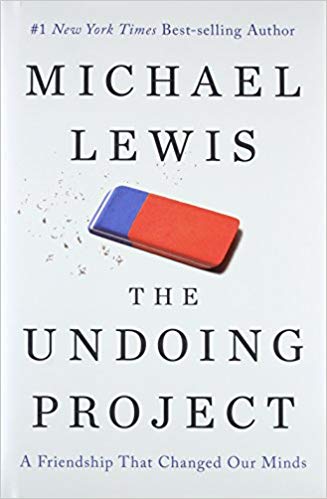Michael Lewis -The Undoing Project Audiobook

This is among Michael Lewis’s finest books yet. The problem is to notify the tale in a manner that describes the habits predispositions without the requirement for technical discussion. Lewis achieved this rather well.
Early in the book he covers the problem of searching players in professional sports leagues. He bears in mind the appeal of the halo result, where scouts see preferable singular characteristics and likewise let that impression effect the analysis of different other qualities. This is later additional typically classified as representativeness, among a variety of heuristics people utilize to make choices with limited info. The Undoing Project Audiobook Free. Representativeness includes the early characterization and classification of an object/event/individual based upon some quality that can be easily acknowledged. Other heuristics talked about consist of anchoring, when one takes brand name- brand-new information in addition to simply makes changes to their preliminary thinking; accessibility, when one selects excessive weight to the info quickly used to them; and simulation, a mental predisposition including the benefit with which one can mentally duplicate choices to reality. While it is acknowledged that heuristics are the majority of the times helpful basic guidelines, they can occasionally result in arranged error.
Representativeness is discussed making use of the ‘Linda issue’, which asks whether it is more possible that Linda is a banks teller or a banks cashier in addition to a member of a feminist company, when all you’re informed is that Linda is a feminist. Numerous participants chose the latter option, although the very first choice consists of the second choice utilizing a less limiting description. Basically, if the possibility of Linda being a bank teller is 10%, and likewise the probability of her being in a feminist business is 99%, after that the very first choice has a 10% chance of being right, while the second of all has a (10% x 99%) possibility of being proper (which is less than 10%). Set up bias remains in a comparable method explained utilizing a problem that asks whether a particular publication has more words with the kind _ _ _ _ ing or _ _ _ _ _ n _. Given that words ending up in ‘ing’ are easily thought about, participants picked the very first choice, neglecting the truth that the 2nd option includes all words that likewise satisfy the very first choice. Accessibility is had a look at much better, as Lewis explains precisely how Kahneman in addition to Tversky strike specialists for over- theorizing from little sample measurements.
Client choice bias are discussed too. At first, it is explained how individuals do not appear to update probabilistic outcome utilizing a Bayesian procedure in real life choice- making. Experimentation has likewise exposed the reality that human consumption options do not adhere to guidelines of transitivity. To put it simply, if a client chooses A to B and B to C, they might often likewise declare they select C to A. They eventually explain this by damaging A, B, in addition to C down right into particular functions, and analogize a private getting A to them genuinely purchasing a bundle of characteristics represented by A. In so doing, they comprehended that not simply are little unique distinctions in specific functions essentially overlooked, yet accurate contrast is frequently not possible considering that various things have different packages of functions. Moreover, they situated that people reveal an endowment predisposition in exchange offers, designating more worth to items that they currently have simply due to the fact that they currently have it.
Possibly the very best accomplishment of Kahneman and Tversky was difficult and utilizing an option to Bernoulli’s energy theory. Energy principle successfully went over particular routines by determining people as either risk flexible, threat neutral, or take the possibility of averse. If confronted with selecting in between $50 definitely free or taking a 50% chance of winning $100 or $0, a threat neutral individual would be separated to the option. A hazard averse person would take the expense-free $50 in addition to stay clear of the chances, considered that the energy they get from the extremely first $50 is higher than that of the second $50. Hence people do not rely on pure probabilistic advantage chances. Nevertheless, energy principle has actually not held up under centuries of analysis. Kahneman and Tversky consisted of in this subject with the concept of remorse hostility, where individuals position extreme weight on possible undesirable results, and after that as soon as again with loss hostility, where people will truly wish to take more risk (as a threat tolerant individual would definitely in Bernoulli’s structure) when challenged with the extremely exact same choice as above yet with losses instead of gains. Michael Lewis – The Undoing Project Audio Book Online. To put it just, if selecting in between a guaranteed $50 loss or taking a 50% chance of shedding $100 or $0, an individual that is hazard averse on the gains side may select to be threat forgiving on the loss side.